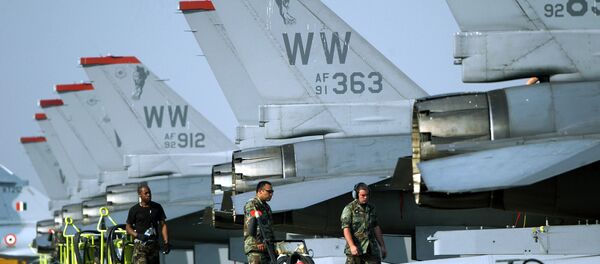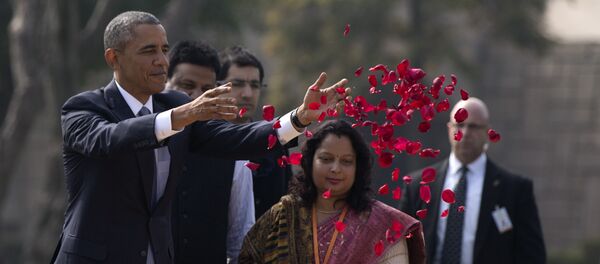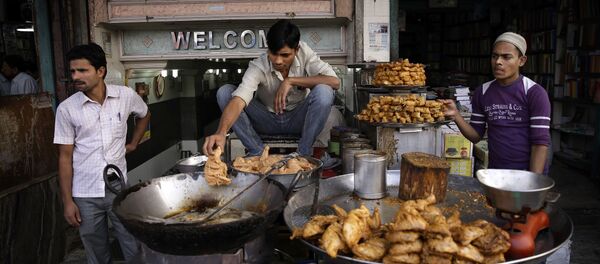Manohar Parrikar, the Defense Minister of India, has left to the US to meet with US Defense Secretary Ashton Carter. This meeting is expected to end with signing of LEMOA act, a treaty which will enable the two countries to use each other's military infrastructure.
Interestingly, the media coverage description of the act is highly controversial. Forbes, for instance, is quick to say that LEMOA will enable "US armed forces… operate out of Indian bases."
"The US Navy plans to deploy 60 percent of its surface ships in the Indo-Pacific in the near future. Instead of having to build facilities virtually from the ground up, as in Afghanistan and Iraq, the US has the benefit of simple arrangements for the tremendous Indian facilities," Forbes's Charles Tiefer writes.
However, the Indian Defense ministry officials insist that no US troops will be deployed in India, and the bases will be used only for berthing or refueling of each other's warships.
"This pact that has been agreed in principle will only facilitate military logistics cooperation such as joint military exercises and did not entail stationing of any US troops on Indian soil," the officials said, adding that this agreement should not be viewed as a move by New Delhi to support Washington in forming any alliance against China.
Ironically, Forbes says exactly the opposite:
"For Prime Minister Modi, it is a major step for India away from its Cold War alliance with Russia, toward a new alliance with the U.S. (and Japan and Australia) to protect the Indian Ocean and the seas off Southeast Asia, especially from China."
While it seems quite obvious that both sides aim to represent the agreement, which has previously caused a significant amount of controversy within Indian Parliament and has been delayed several times, as their own diplomatic victory, the experts also share different opinions on the issue.
Defense Analyst C Uday Bhaskar believes that it is "India's interest in the long term in terms of being able to obtain fuel and logistics at short notice."
"At a time when India needs to maintain its presence in the region, this is a useful traction for India," he says, adding that the agreement is unlikely to be binding in nature and India will always have the right to refuse assistance.
Strategic Affairs expert Bharat Karnad, however, thinks different, and even says that Prime Minister Modi has "lost what little strategic sense he may have started out with."
"India is set to lose its sovereign decision-making status and strategic independence", he says, adding that LEMOA will still mark India as a secondary power and American camp follower.
Karnad notes that stationing of US troops in India will cause "social turmoil" among Indian citizens and, should India be pulled into a conflict against its allies — China or Russia — it would be a "disaster".
According to head of Cyber Initiative at the Observer Research Foundation, Arun Mohan Sukumar, the Indian government should be very careful about this agreement and seek its own interest; otherwise it will have troubles "selling it at home".
"It is one thing for India to leverage the agreements to aid its role as a "net security provider" and another to be drawn into US-China rivalry in the region," he writes.
And, apparently, there is some strategic self-interest for India in this agreement, as, according to Dr. Rupakjyoti Borah, Research Fellow with Japan Forum for Strategic Studies, India seeks to sign the agreement before the US Presidential Elections in November.
Noting that the victory of Donald Trump will likely hurt US-Indian ties, Borah says that "it makes perfect sense for New Delhi to make hay while the sun shines."




